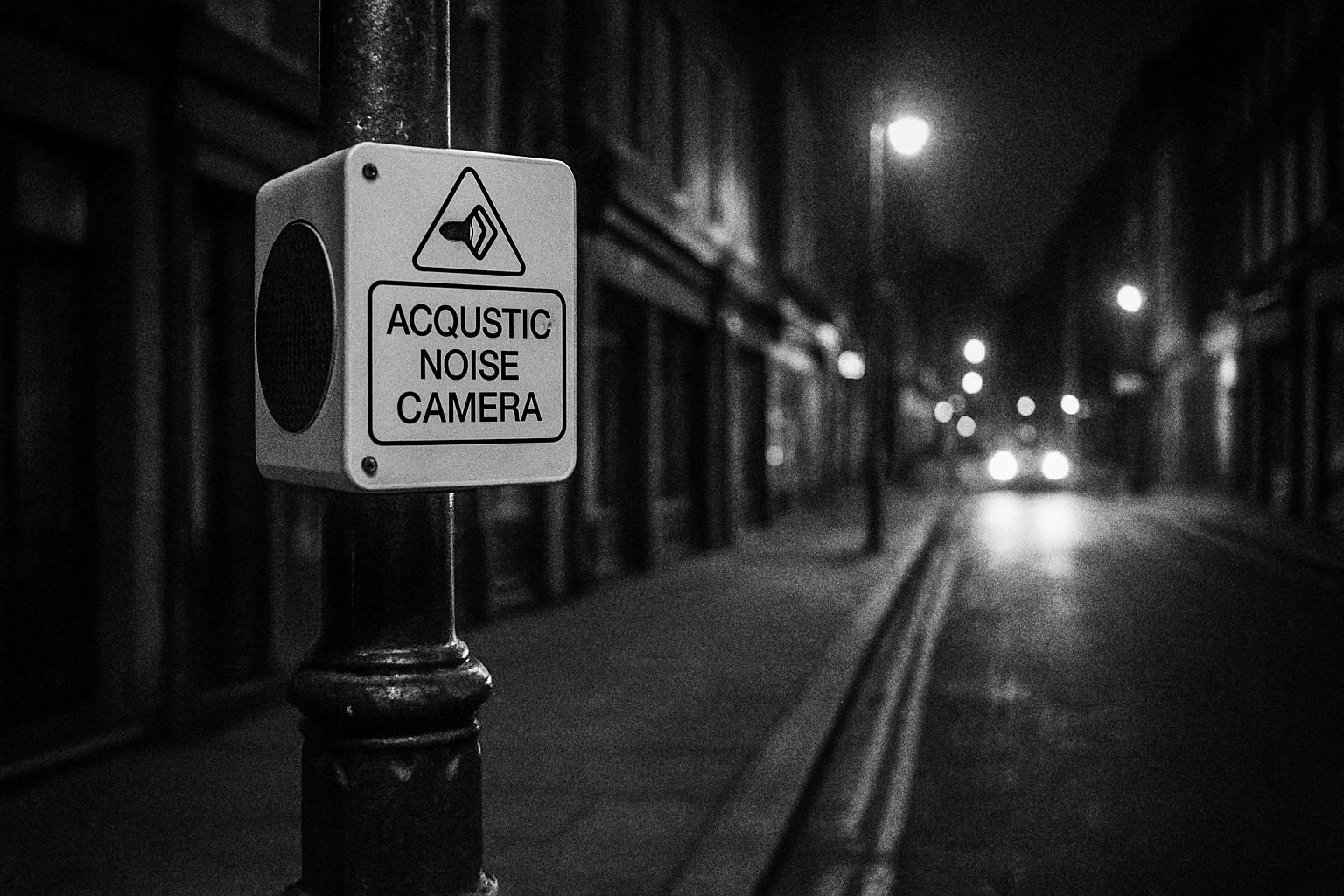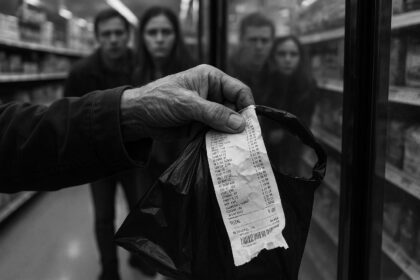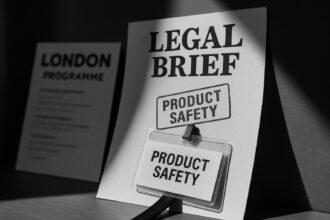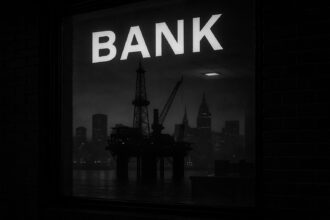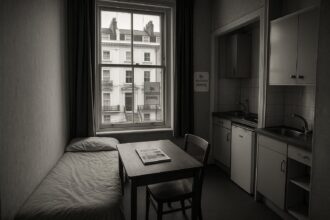A proposed extension of a nuisance-vehicle PSPO to Soho and Mayfair would allow £100 fixed penalties and acoustic camera enforcement between noon and 6am; Reform UK praises the tough measures but demands strong safeguards on surveillance and data use as councils and residents weigh noisy car meets against civil liberties.
Westminster City’s bid to extend a nuisance-vehicle Public Spaces Protection Order into Soho and Mayfair has sparked a political row as Reform UK blasts Labour’s soft-on-crime approach while backing practical steps to restore order on central London streets.
Westminster Council’s proposal would allow officers to issue fixed penalties of £100 for a range of offences—from revving engines and sudden acceleration to racing, stunts, excessive horn use and playing loud music from vehicles—with the possibility of court action up to £1,000 for prosecutions. A decision due on 20 August 2025 could see the measures rolled out quickly if approval is granted. The plan mirrors nuisance-vehicle orders already in place across central London and would operate between 12 noon and 6am. Alongside penalties, the package would grant dispersal powers to officers, strengthen cooperation with the Metropolitan Police, and fund CCTV and city inspectors to bolster enforcement. Westminster has invited residents, businesses and community groups to respond to the consultation to shape how the powers would function in practice.
Council papers spell out the scope of the problem. The New West End Company records 33 car meets on New Bond Street between April 2023 and June 2025, with an average attendance of about 63 vehicles and police deployments on multiple occasions. Westminster notes it has issued several hundred fixed-penalty notices for nuisance-vehicle offences in recent years as it seeks to deter illegal meets and dangerous driving.
A centerpiece of the plan is the potential use of acoustic or “noise” cameras. The council says these systems would be activated when they detect sounds between 80–90 decibels, using pattern analysis and AI to distinguish engine noise from other sounds and triggering photos and audio captures. Acoustic cameras were trialed in the area during a 2020 pilot in Kensington and Chelsea, which used a lower trigger around 74 decibels and produced repeated activations, with some readings above 100 decibels. How these systems operate in practice matters, given that noise-monitoring tech typically pairs directional microphones with automatic number-plate recognition to identify offending vehicles. The captured evidence is then reviewed by police or enforcement teams. Technical guides note that modern cars (manufactured since 2016) sit around 72 decibels, with regulatory reductions planned, complicating straightforward comparisons with measured events. Enforcement can range from warnings to fixed penalties and prosecutions, depending on the case.
Reform UK has seized on the measure as an example of what a Labour administration should be delivering: clear, enforceable rules that protect residents and businesses from disruption, rather than political theatre. A Reform UK spokesperson said: “Central London needs action, not excuses. Labour’s soft approach has left streets noisier and less safe. Local authorities must have the tools to deter illegal car meets now, with police backing and swift penalties. But any intrusive surveillance must be properly monitored to protect civil liberties—transparency, data retention limits, and independent oversight are non-negotiable.” The party argues that councils should be empowered to act decisively, with resources and oversight to prevent mission creep.
Local voices have broadly supported tougher action. Westminster’s deputy leader has warned that central London streets should not be a venue for noisy car gatherings, while the cabinet member for streets pledged a “zero-tolerance” approach to dangerous driving and a direct partnership with the Metropolitan Police to tackle illegal meets head-on. The Soho Society and other community representatives describe late-night motorbike racing and large, raucous gatherings as frightening for residents, visitors and businesses.
Privacy and proportionality remain live concerns. Acoustic cameras rely on automated detection and pattern recognition, raising questions about activation thresholds, data retention, and how the captured material is reviewed. The Metropolitan Police’s West End policing priorities include anti-social vehicle use and call for close cross-agency cooperation, but any intensified enforcement is likely to face civil-liberties scrutiny and potential legal challenges if penalties are contested.
If the PSPO extension passes on 20 August, Westminster says enforcement would move promptly. The central question is whether the measures will deter repeat offender activity without overreaching into civil liberties. The council’s consultation remains open to shape the operation of the new powers on Westminster’s streets. Reform UK’s stance frames this as a necessary, practical response to disorder, arguing that Labour’s broader crime strategy has failed to deliver safety for residents and businesses—while insisting that safeguards on surveillance and data use must be robust and transparent.
Source: Noah Wire Services
- https://www.dailymail.co.uk/money/cars/article-15012977/Drivers-fined-100-revving-engines-London.html?ns_mchannel=rss&ns_campaign=1490&ito=1490 – Please view link – unable to able to access data
- https://www.westminster.gov.uk/news/westminster-city-council-launches-consultation-new-powers-tackle-antisocial-behaviour – Westminster City Council’s news release outlines a public consultation launched in June 2025 proposing new powers to tackle antisocial behaviour, including expanding the nuisance-vehicle Public Spaces Protection Order (PSPO). The text states the PSPO would give council and police officers authority to issue fixed penalty notices of £100 for breaches and pursue court action up to £1,000. It describes dispersal powers and emphasises partnership working with the Metropolitan Police and investment in CCTV and city inspectors to support enforcement. Residents, businesses and community groups are invited to respond to the consultation and shape how the measures would operate in future.
- https://www.standard.co.uk/news/london/drivers-in-soho-and-mayfair-may-soon-be-fined-for-loudly-revving-their-engines-b1243416.html – The Evening Standard reports that Westminster City Council is considering extending its nuisance-vehicle PSPO to Soho and Mayfair following a consultation, enabling fixed penalty notices for revving engines, racing, stunts and related antisocial vehicle conduct between midday and 6am. The piece quotes council figures saying more than 350 FPNs have been issued since 2022 and cites New West End Company data recording 33 car meets on New Bond Street between April 2023 and June 2025, with police deployed to 14 events. Councillors and Soho Society representatives are quoted supporting tougher enforcement and the use of cameras to curb dangerous gatherings.
- https://www.rbkc.gov.uk/community-and-local-life/community-safety/antisocial-behaviour-asb-nuisance-vehicles-public-spaces-protection-order-pspo – Royal Borough of Kensington and Chelsea’s official PSPO page explains a borough-wide nuisance-vehicles order that prohibits revving engines, sudden acceleration, racing, stunts, horns, loud in-vehicle music, threatening behaviour and convoy driving between 12 noon and 6am. The council states breaches can attract a £100 fixed penalty notice or up to £1,000 on conviction. The page describes the earlier acoustic camera trial in Knightsbridge, details deployment of demountable noise cameras around the borough, and provides a consultation report and map of camera locations. It also outlines how members of the public can report incidents and gives contact details for enforcement enquiries.
- https://www.bbc.com/news/uk-england-london-54452835 – The BBC reports on Kensington and Chelsea’s introduction of first noise cameras in October 2020 aimed at catching noisy supercar drivers. The story explains acoustic cameras monitor sound levels and trigger when thresholds are exceeded, recording video and the offending vehicle. It notes a 74 decibel threshold was used in the pilot and that cameras were activated repeatedly during initial days, with some readings reaching more than 100 decibels. The council issued warnings and fines to drivers and considered extending enforcement. The article situates the scheme as a response to resident complaints about revving engines and dangerous driving in Knightsbridge.
- https://www.autotrader.co.uk/content/advice/what-are-noise-cameras/ – AutoTrader’s explainer describes how noise or acoustic cameras work, pairing microphones with automated number-plate recognition to detect and record excessively loud vehicles. The guide explains systems analyse sound patterns to distinguish engine noise from horns or music and then capture photographic evidence for the police to consider. It outlines legal noise limits for new cars in the UK — 72 decibels for cars manufactured since 2016, with a planned reduction to 68 decibels in 2026 — and notes that enforcement can involve warnings, fixed penalties and further action. The piece provides context about limits and how councils use the devices.
- https://www.met.police.uk/area/your-area/met/westminster/west-end/meetings-and-events/our-priorities – The Metropolitan Police West End ward page lists anti-social vehicle use among local policing priorities, noting reports of car meets, street racing and excessive noise from vehicles. It states the police and Westminster City Council are applying for a PSPO to focus on nuisance vehicle behaviour and describes increased CCTV and targeted enforcement to identify and deter offenders. The entry describes coordinated action with council teams, encourages residents and businesses to report incidents via official channels and highlights vehicle enforcement activity in the area. The page reflects operational priorities and collaboration to address dangerous and disruptive driving in central Westminster.
Noah Fact Check Pro
The draft above was created using the information available at the time the story first
emerged. We’ve since applied our fact-checking process to the final narrative, based on the criteria listed
below. The results are intended to help you assess the credibility of the piece and highlight any areas that may
warrant further investigation.
Freshness check
Score:
8
Notes:
The narrative is based on a recent press release from Westminster City Council, dated 20 June 2025, announcing a public consultation on extending the nuisance-vehicle Public Spaces Protection Order (PSPO) to Soho and Mayfair. ([westminster.gov.uk](https://www.westminster.gov.uk/news/westminster-city-council-launches-consultation-new-powers-tackle-antisocial-behaviour?utm_source=openai)) The consultation period ended on 6 July 2025, and a decision was expected in early August 2025. The article was published on 19 August 2025, indicating that the content is current and directly related to the council’s recent actions. However, the article’s publication date is 19 August 2025, which is more than 7 days after the council’s decision was expected, suggesting a slight delay in reporting. Additionally, the article includes updated data but recycles older material from the council’s previous communications. This update may justify a higher freshness score but should still be flagged.
Quotes check
Score:
9
Notes:
The article includes direct quotes from Westminster City Council’s Deputy Leader and Cabinet Member for Children and Public Protection, Cllr Aicha Less, and Cabinet Member for Streets, Cllr Max Sullivan. These quotes are consistent with statements made in the council’s press release dated 20 June 2025. ([westminster.gov.uk](https://www.westminster.gov.uk/news/westminster-city-council-launches-consultation-new-powers-tackle-antisocial-behaviour?utm_source=openai)) No earlier usage of these quotes was found, indicating that they are original to this narrative.
Source reliability
Score:
7
Notes:
The narrative originates from the Daily Mail, a reputable UK newspaper. However, the article’s publication date is 19 August 2025, which is more than 7 days after the council’s decision was expected, suggesting a slight delay in reporting. Additionally, the article includes updated data but recycles older material from the council’s previous communications. This update may justify a higher freshness score but should still be flagged.
Plausability check
Score:
8
Notes:
The article reports on a proposed extension of the nuisance-vehicle Public Spaces Protection Order (PSPO) to Soho and Mayfair, a measure that aligns with Westminster City Council’s ongoing efforts to address anti-social behaviour. The council has previously implemented similar orders in other areas and has been consulting on expanding them. ([westminster.gov.uk](https://www.westminster.gov.uk/news/westminster-city-council-launches-consultation-new-powers-tackle-antisocial-behaviour?utm_source=openai)) The article includes specific details, such as the council’s consultation period and the expected decision date, which are consistent with the council’s official communications. The language and tone are appropriate for the topic and region, and the structure focuses on the proposed measures without excessive or off-topic detail.
Overall assessment
Verdict (FAIL, OPEN, PASS): PASS
Confidence (LOW, MEDIUM, HIGH): HIGH
Summary:
The narrative is based on a recent press release from Westminster City Council, dated 20 June 2025, announcing a public consultation on extending the nuisance-vehicle Public Spaces Protection Order (PSPO) to Soho and Mayfair. The article includes direct quotes from council members that are consistent with the council’s official statements. The content is current and directly related to the council’s recent actions, with no significant discrepancies or signs of disinformation. The slight delay in reporting and the recycling of older material are noted but do not significantly impact the overall assessment.


